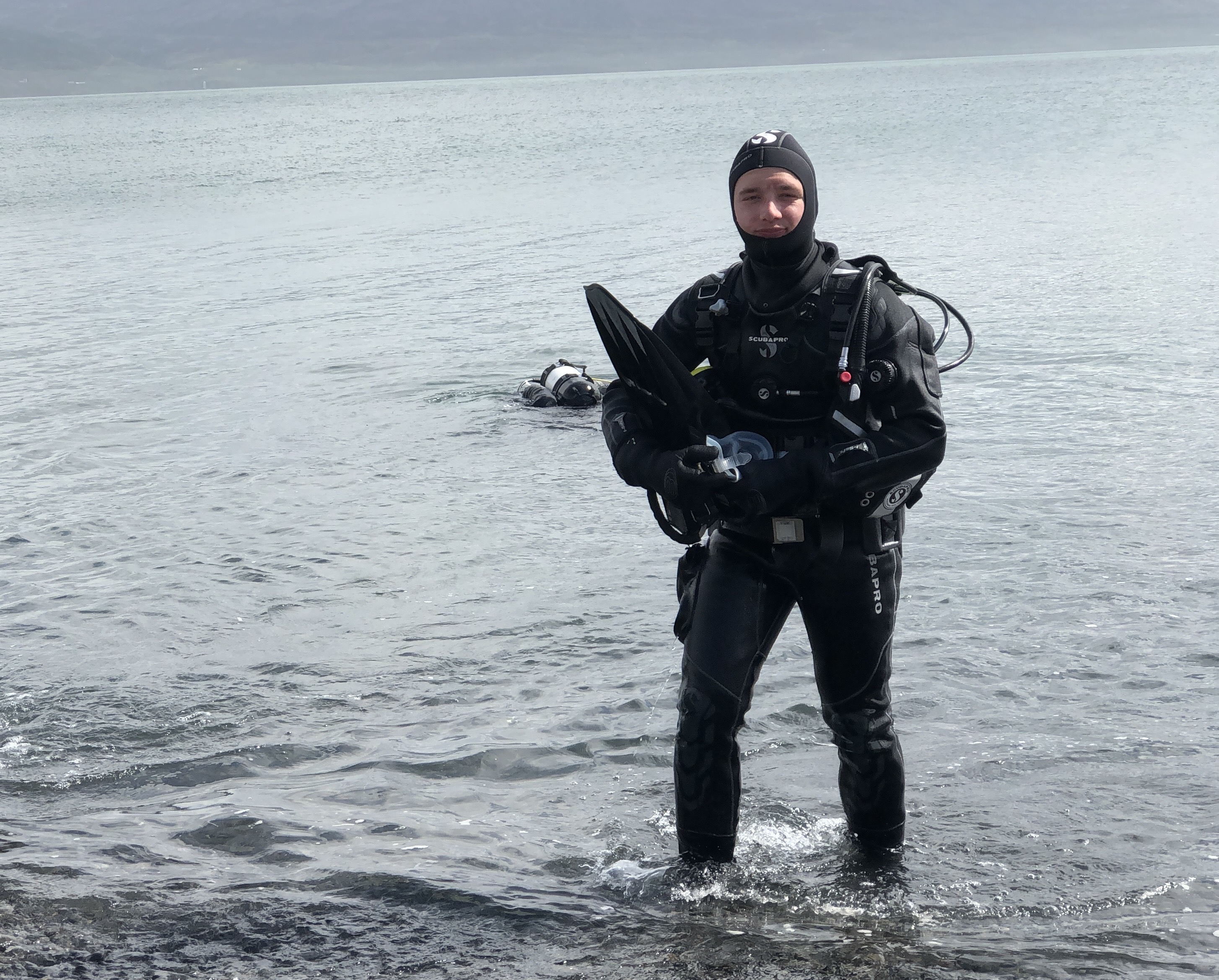Tamino Köhne ’24 wins coveted grant to rescue American Samoa’s coral reefs

Tamino Köhne ’24, a dedicated advocate for marine conservation, has been awarded the prestigious Projects for Peace grant for his visionary initiative aimed at rejuvenating coral reefs in American Samoa.
Köhne won the Projects for Peace grant, which awards $10,000 to a Lake Forest College student each year who develops an innovative, community-centered, and scalable response to a pressing global issue.
His project, titled “Restoring Reefs, Reviving Hope: Empowering American Samoan Communities Through Coral Restoration,” involves providing workshops to local communities at three different sites over four weeks. The workshops will teach community members how to restore coral reefs using different techniques and methods and explain why coral reefs are important to the island and their livelihoods. They will then go out to the reefs and work on restoring them together.
“It's very important for the island nations and for the communities to learn about coral restoration so they can maintain the site themselves and so they can spread the word and the knowledge they’ve gained,” Köhne said.
Double majoring in environmental studies and sociology and anthropology, Köhne grew up in Berlin and has always loved the ocean. A scuba diver from a young age, his interest in environmental studies and environmental protection grew while at the College and after participating in several internships at the Bazaruto Center for Scientific Studies in Mozambique and at a restoration program in Indonesia with Blue Corner Research.
“At the College, I started exploring the ocean more and looking at it from different viewpoints, not just from the scuba diving perspective but also from an environmental protection perspective,” Köhne said.
Coral reefs are important for peacemaking as they’re critical for the well-being of many island nations. Reefs serve as protection for the island’s inhabitants and for the islands themselves; they act as a natural buffer from flooding and protect biodiversity. When coral reefs die, fish populations and fish diversity decrease, which threatens the livelihood of islanders who rely on fishing to make a living.
“Coral reefs protect island peoples’ culture and traditions,” Köhne said. “They're very connected to the natural environment, and coral reefs are a key element that allow them to keep living the way they're living.”
As climate change progresses and sea levels rise, some island nations are facing the reality of disappearing completely. The country of Tuvalu, consisting of nine islands between Australia and Hawaii and home to around 11,000 people, is expected to be underwater by the year 2100. Australia is offering refuge to Tuvaluans as their country’s survival is compromised.
“It’s not just the land that disappears,” Köhne said. “It’s also the culture and traditions. If you put 10,000 people from an island nation into a completely different country, they will have to assimilate and will be more spread out. They won’t be able to follow their traditions, and their culture might be lost if they’re not able to maintain it.”
Köhne’s passion for this project is rooted in helping the people and culture of American Samoa survive the rising sea levels and providing them with the tools and knowledge to take matters into their own hands.
“At the end of the day, it all leads to peace and maintaining peace on the islands,” Köhne said.
When Köhne found out he won the Projects for Peace grant, he was thrilled.
“I really poured a lot of effort into the proposal,” Köhne said. “I did lots of research and contacted different organizations and community groups to find out where might be possible to do this project.”
While he had originally planned to implement his project in Tuvalu, after speaking with other researchers who have led similar projects, he realized it would be too expensive. All of his supplies would have to be imported from Fiji and transported to Tuvalu on a container ship. Köhne decided to carry out the project on American Samoa, as they already have the materials he needs.
When planning for his project, Köhne identified villages in American Samoa that have shown interest in restoring coral reefs and want to learn how to do so.
“The villages showing interest in my project made me very happy,” Köhne said. “It demonstrates that they want to collaborate and are willing to take action.”
Members of each village will be selected to serve as caretakers who will lead the community in the restoration process after Köhne leaves the island.
“Coral restoration is a long process and isn’t something you can do in four weeks and be done with,” Köhne said. “What we can do in four weeks is establish coral restoration sites and let them grow by themselves. But once a month or every other month, someone should make sure the site is still there and check if there are any threats, like anchors or boats.”
Köhne will be carry out his project in American Samoa in July and August.